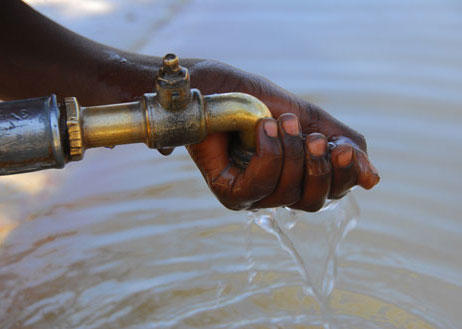
Humanitarian and Development
Location
Kinshasa, République Démocratique du Congo
Sponsor
Thierry Vandevelde
Grant
26 300 € to the Selection Committee at 2007/07/03
Project Leader
Université de Franche-Comté
"The aim is to fully grasp a major health problem by remediating the quality of the environment for this part of Africa regularly struck by cholera epidemics. The results of this study will culminate in solutions to battle this disease".
Thierry Vandevelde
In sub-Saharan Africa, cholera remains a murderous endemic disease. Among the countries regularly struck by this plague, the Democratic Republic of Congo regularly records thousands of deaths due to this very contagious disease. Between 2000 and 2005, no less than 68 000 cases were registered throughout the country, and 3400 persons died from the disease in the provinces of Katanga and Eastern Kasaï alone. A total of more than a hundred cholera epidemics have been detected, essentially in the eastern provinces of the country, and no effective measure has ever been taken to prevent the attacks, due to the lack of sufficient analytical data.
Saving Lives by Understanding How the Epidemics Break out
This intestinal infection causes severe diarrhea and vomiting, which can lead to fatal dehydration, if not rapidly treated. It is caused by a bacterium present in stagnant water (in the estuaries, river oxbows, the outskirts of certain lakes). Thus, to try to devise solutions to this insupportable situation in the medium term, the researchers of the parasitology and mycology ward of the Besançon teaching hospital have decided to conduct an in-depth study of the epidemiology of cholera in the lacustrine regions of the Democratic Republic of Congo.
This study will attempt to determine the various steps and causes of the outbreak of the epidemics. Why does the epidemic propagate at a given moment, whereas it originates in zones infected by the bacillus endemically? What promotes its sudden expansion? By seeking answers to these questions, the researchers will be able to identify the adequate and concrete preventive measures that will help to eradicate the spread of the disease.
Efforts will then be focused on target programs to improve health conditions, access to drinking water and vaccination. The problems of water and sanitation are clearly related to the development of this disease, so that the team in charge of the study will include both epidemiologists and environmental engineers, as well as experts of Veoliaforce.

